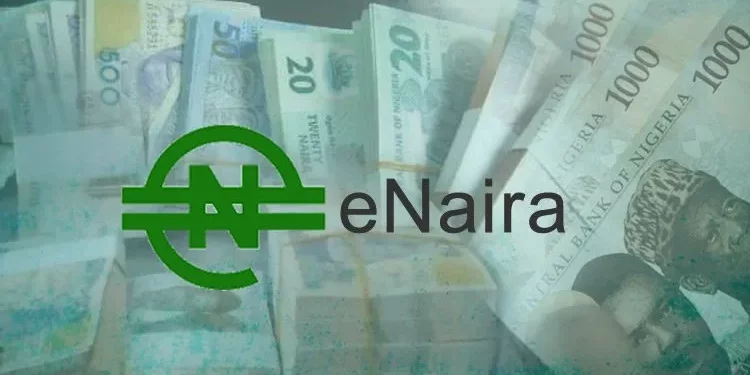Nigeria’s eNaira CBDC: What Went Wrong?
The eNaira, Nigeria’s central bank digital currency (CBDC), was released over a year ago to widespread interest. However, as of October 2022, it barely had any usage within a country full of crypto-curious investors, even as paper Naira notes are in short supply. A recent article even claims that the Nigerian government is looking for help to redesign and relaunch the digital currency. While the implementation of the eNaira gets many things right, it fails to capitalize on many of the real benefits of blockchain technology, which is probably why it continues to have low usage and popularity.
The eNaira is built on top of the Hyperledger Fabric blockchain protocol, which is an open-source project started by the Linux foundation. The eNaira project has implemented this as a private blockchain network. Instead of the public crypto projects that people are familiar with, eNaira nodes will only be run by the Central Bank of Nigeria (CBN) and its trusted parties. Wallet apps will then connect to these nodes to interface with the blockchain network, while the nodes themselves will be used to maintain the blockchain protocol, validating new blocks and running transactions.
The protocol itself is a good choice. Open-source development is popular in the crypto community for its decentralized nature and the belief that an open codebase will lead to better security. The Hyperledger protocol has frequent updates and is fast: stress tests show that it can maintain a rate of over 2,000 transactions per second, and up to 3,000 TPS. It also allows for the creation of smart contracts: pieces of code that run on top of the blockchain, which can enable complex decentralized apps to run on top of the eNaira blockchain. This can allow for the creation of new thriving economies of decentralized goods governed by smart contracts, something the CBN notes briefly in its Nigeria Payments System Vision 2025 report. Smart-contract functionality has not yet been enabled.
eNaira logistics and security features
The CBN has been making sure that the eNaira is not just a separate digital currency, but something that works within the existing economy. In September, the bank announced that the eNaira would be built into the Nigeria Inter-Bank Settlement System, which would allow for the digital currency to be easily transferred to and from bank accounts in financial institutions. The fact that owning eNaira does not offer any sort of interest shows that the CBDC is meant to exist more as a form of cash than a replacement for actual financial institutions.
A big fear around crypto is its popularity with criminals. The CBN has taken steps to ensure that financial crimes cannot be committed using the eNaira, which they have outlined thoroughly in a regulatory guidelines release. For the end user, the most important idea is the hierarchical ranking of wallet users into different tiers, corresponding to the nature of the customer and their level of authentication provided. Each tier has certain balance and transaction limitations to prevent abuse of the system. In addition, every user, upon creating a wallet, will need to provide personal credentials. While higher tiers offer more freedom, they are also required to provide additional information. This, along with the nature of cryptocurrency ledgers, makes every single transaction traceable and ensures that money cannot be laundered using the new system to avoid taxation.
Technical drawbacks of the eNaira
Unfortunately, the anti-laundering measures built into the eNaira can be seen by users as a breach of privacy, with the government able to monitor all your money and potentially use that information for control. This brings us to the biggest problem with the eNaira: the centralization. While most blockchains and cryptocurrency networks are built around the tenet of openness and transparency bringing power back to the people, the eNaira seems to have been created to preserve as much government power as possible.
Nodes are run in private, and no transaction details are shared with the public, so usage statistics remain visible to the CBN only. The strict authentication measures make government tracking incredibly viable, while not really giving any real accountability to the government. If the government wanted to edit the internal eNaira ledger to alter money supply, it easily could, and no one would be any the wiser.
In fact, there is almost no reason for the eNaira to even be backed by a blockchain; to the outside world, it functions as a regular, centralized banking app. The blockchain gives no additional functionalities to the outside users of the system, aside from the promise of smart contracts. The only thing the blockchain provides is an easier way for the government to monitor all transactions, giving the government additional control.
Mixed messages about cryptocurrencies
These technical factors show that the eNaira is a flawed premise that seeks to use a democratic technology to centralize government power. However, to most laypeople, this does not matter. Even after various government promotions, Nigerians are wary of the eNaira blockchain and refuse to use it. After the government banned cryptocurrencies in Nigeria to “protect” its population from volatile price swings and dangerous scams, the government implementing its own cryptocurrency-backed CBDC is a failure of branding and mixed messaging. It may have been better to not have advertised any connection to the blockchain entirely, and just introduce the CBDC as a regular online banking application that is supported by the government.
Introducing a CBDC should not turn into an authoritarian exercise in control of financial systems but should instead seek to create a more equitable and open financial system. If the CBN wishes the eNaira to do that, it should lessen restrictions on signing up and open its nodes to the public so that the ledger is publicly accessible. In this way, the eNaira can be open and transparent and wrongdoings by both individuals and the government can be visible to all.








